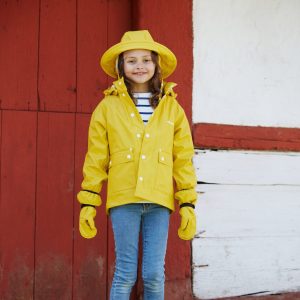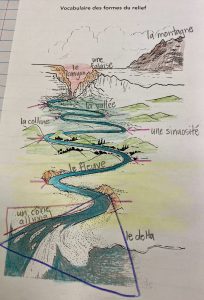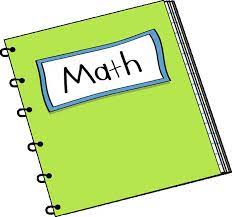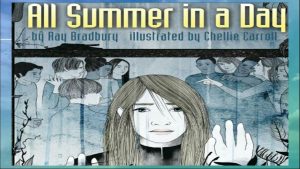 le 19 janvier 2024
le 19 janvier 2024Upcoming Dates
- Thursday and Friday, February 1-2 – NO SCHOOL, Teacher grading days
- Wednesday, February 14 – Valentine’s Day (We will make our own cards at school. Please do not send children to school with individual cards.)
- Monday, February 19 – NO SCHOOL, Presidents Day (This may turn out to be a make-up snow day.)
What’s up! Quoi de neuf?
 Please send your child to school in proper footwear and a WARM water-repellent jacket with a hood or a hat when the weather is rainy. It’s getting cold, too, so please have your child wear warmer layers and weather-appropriate shoes. Thank you!
Please send your child to school in proper footwear and a WARM water-repellent jacket with a hood or a hat when the weather is rainy. It’s getting cold, too, so please have your child wear warmer layers and weather-appropriate shoes. Thank you!
If your child is ill or has had a fever or vomited within the previous 24 hours, please keep your child home. If your child will be absent, please email both teachers (kincaid_j@4j.lane.edu and hopper_s@4j.lane.edu) and please call in and leave a message on the school attendance line (541) 790-7080 or email Eliza at drummond_e@4j.lane.edu.
Please ensure that you email BOTH TEACHERS when you communicate with us.
Le français:

What a crazy time we’re having weather-wise. I hope you’ve all been well and heated. I’ve had to rewrite this blog entry twice now, since we now don’t have school on Thursday. We’ll see, when we physically get back into the classroom what the energy levels and attendance are like before finalizing the day’s plan. Probably, the kids will do art with me on the first day back, likely the watercolor project of a snow scene that we began in December. Hopefully, we’ll have time for some movement also.
Next week we’ll hopefully be back to normal and then, we will continue to correct two horrible sentences on all full days, and alphabetize on our short day. The alphabetizing includes vocabulary words, and we’re also sorting by vowel sounds. We’ll begin our next new “J’observe…” writing project next week. Most students have completed several versions of tracing their first and last names, and now everyone should be on the culminating project of writing all the uppercase letters and names, including their name, their family names, their addresses, and their city, state and country in cursive. That is a yellow packet and will come home once completed.
 Last week, we got to discuss Dr. Martin Luther King Jr., who gave the famous speech, “I Have A Dream.” . (I just discovered that MLK Jr. gave his speech the day before my birthday!) We also discussed, in French, why we celebrate this amazing human, his role in the civil rights movement, his role in history, why he won the Nobel Peace prize, along with the difference between human rights and civil rights, and many other aspects of MLK Jr. and his impact on the world. We also talked about segregation, and I told them some examples of my mom’s experiences as nurse in the south in the 1950s & 60s.
Last week, we got to discuss Dr. Martin Luther King Jr., who gave the famous speech, “I Have A Dream.” . (I just discovered that MLK Jr. gave his speech the day before my birthday!) We also discussed, in French, why we celebrate this amazing human, his role in the civil rights movement, his role in history, why he won the Nobel Peace prize, along with the difference between human rights and civil rights, and many other aspects of MLK Jr. and his impact on the world. We also talked about segregation, and I told them some examples of my mom’s experiences as nurse in the south in the 1950s & 60s.
Student goal: I am applying myself to my school work. I am actively seeking learning.
Student goal: I can correct grammatical and punctuation errors in sentences in French.
Student goal: I can form and connect all the lowercase and uppercase letters correctly in cursive.
Student goal: I am expanding my vocabulary by incorporating new words into my speaking and writing.
Les sciences:
We have nearly completed the rocks and soils portion of sciences, and we’re moving into the landforms portion. We still have one thing to complete with chemical weathering, but we’ve already moved into naming landforms, and we’re also working on a landforms packet that will go into students’ Oregon state studies project. Hopefully, next week, we’ll move into some experiments with erosion and deposition, which involves lots of soil and running water. We will work in our rock collections before the end of January. I had my guest teacher work on reading about erosion and deposition in the district science book with the kids, which is only in English, during my absence. In February, we’ll begin a new science unit, Energy!


Mme Shelli hopper_s@4j.lane.edu English & Math teacher
Math
This week’s Key Concepts:
- We can compare and order fractions with different denominators using a variety of strategies.
- We can compare two numbers indirectly by comparing them both to a common benchmark.
There is NO MATH review HOMEWORK.
Look for your child’s most recent math test and months test to come home Wednesday. If they did not earn 80%or higher on the test, I will be working on reviewing missed concepts with them over the next week or so.
We will discuss strategies for comparing fractions with different denominators. In years past, the main way we taught students to compare fractions was by creating common denominators. However, there are some logical ways to REASON about Fractions that don’t involve complicated multiplication. To start, we’ll reason using visual models (area models and number lines. This helps students to rely on the their CONCEPT of FRACTIONS rather than simple calculation which students may or may not conceptually understand.
Later in the week, we’ll discuss comparing and ordering fractions by comparing to a common benchmark such as 1/2. See the linked for videos (video 1 video 2) for an explanation. This reasoning requires a greater conceptual knowledge of fractions than the method of finding a common denominator. Of course, the common denominator strategy will be taught later in the unit, but for now, we’re looking for more efficient methods to compare.
English
We have started our next English unit, Extreme Settings. Last week, students analyzed the short story, “All Summer in A Day” by Ray Bradbury, for plot, setting, figurative language, and descriptive figurative language. They enjoyed comparing the story to the short film version as we discussed why the filmmakers may have changed and added to the story for their film.
This week, we’ll analyze a few poems, “Dust of Snow” and “Stopping by Woods on a Snowy Evening” by Robert Frost. As we look at the vocabulary and literary elements of the poems, we’ll also look at the narrator’s perspective in the poem, and we’ll look for sensory details the poet uses to describe the setting. Students will do some short writing projects to work on describing a setting and writing dialog. These brief assignments will build students’ skills to be ready for a longer fiction narrative writing assignment coming soon.
Here is more information for parents about the Wit and Wisdom unit, Extreme Settings. The unit will continue through the beginning of March.

Write a Comment
You must be logged in to post a comment.